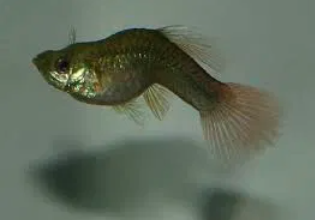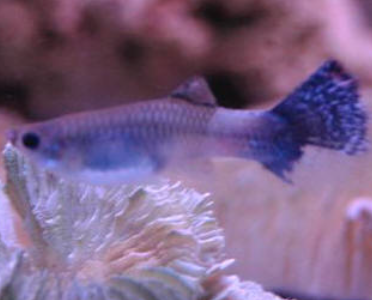Introduction To Rare Guppy Fish Diseases
When it comes to keeping guppy fish, most fish keepers focus on the common ailments that affect these beautiful little creatures. However, there are certain rare guppy fish diseases that many may not be aware of. These rare diseases, although less common, can have devastating effects on your guppies if not identified and treated early. Understanding these diseases is crucial to maintaining a healthy aquarium. In this article, we will explore some of the rare guppy fish diseases, how to identify them, and most importantly, how to prevent and treat them effectively.
The Impact of Rare Guppy Fish Diseases
Although Guppy fish are generally hardy and easy to care for, they are susceptible to certain diseases, including some rare ones that are often overlooked. These rare guppy fish diseases are not something you’ll encounter daily, but when they do occur, they can be tricky to spot and even harder to treat. As a responsible fish keeper, it’s essential to be aware of these diseases so you can take the necessary precautions.
Some of these diseases are caused by parasites, while others may be linked to environmental factors or genetic issues. The key to preventing these diseases is understanding their causes and symptoms so you can address them quickly before they spread to other fish in the tank. Let’s take a closer look at some of the rare guppy fish diseases.

Velvet Disease
One of the rare guppy fish diseases you may come across is velvety disease also known as Oodinium or Gold Dust Disease. This condition is caused by a parasite called Oodinium that attaches itself to the skin and gills of the fish. It’s not the most common disease, but it can be fatal if left untreated.
The telltale sign of Velvet Disease is the appearance of a fine, golden dust-like coating on your guppy’s skin, which resembles velvet. This coating is the parasite irritating the fish’s skin and gills. The symptoms of Velvet Disease also include a loss of appetite, lethargy, and rapid gill movement as the guppy struggles to breathe.
If you spot any of these symptoms, it’s vital to act quickly. You can treat Velvet Disease with copper-based medications, and raising the water temperature to around 28°C can speed up the life cycle of the parasite, allowing the medication to work more effectively. Always follow the instructions on any medication to avoid overdosing, as this can harm the fish further.
Dropsy
Another rare guppy fish disease to be aware of is Dropsy. While this condition is more commonly found in other species of fish, guppies can also fall victim to it. Dropsy is characterised by swelling or bloating, caused by fluid retention in the body. This is often a symptom of an underlying health issue, such as kidney failure, bacterial infection, or internal parasites.
In guppies, the first signs of Dropsy include swelling in the abdomen and a distended, pinecone-like appearance as the scales start to protrude. A guppy suffering from Dropsy may also display a lack of activity, loss of appetite, and erratic swimming behaviour. The fish’s body can appear lopsided due to the bloating.
Treatment for Dropsy requires addressing the underlying cause of the disease. Antibiotics are often prescribed to combat bacterial infections while improving water quality and reducing stress levels in the aquarium can help the fish recover. Sadly, in some cases, the prognosis for a guppy with Dropsy is poor, particularly if the disease has progressed too far.
Mouth Fungus
Mouth Fungus is another rare but potentially deadly disease that can affect guppy fish. This fungal infection, also known as Columnaris, targets the fish’s mouth and gills, and it’s often triggered by poor water conditions or stress. While not as rare as some of the other diseases, it’s still considered a less common affliction.
The most noticeable symptom of Mouth Fufungiis the appearance of white, cotton-like growths around the mouth, gills, and fins. This infection can spread rapidly, causing tissue damage and eventually leading to death if untreated. The guppy may also exhibit reduced swimming activity, loss of appetite, and difficulty breathing.
Treatment for Mouth Fungus typically involves the use of antifungal medications and improving water quality. Quarantining infected fish is essential to prevent the fungus from spreading to other fish in the tank. Regular cleaning of the aquarium and maintaining a stable water temperature can also help prevent diseases from occurring in the future.
Fin Rot
Fin Rot is a rare but serious disease that can affect guppy fish, particularly those living in poor water conditions or those under stress. This bacterial infection attacks the fish’s fins and tail, causing them to deteriorate and become ragged. While Fin Rot is not a disease that is exclusive to guppies, it’s still a condition that can be devastating for them.
The early signs of Fin Rot include the tips of the fins becoming frayed or discoloured. If left untreated, the infection can cause the fins to rot away completely, making it difficult for the fish to swim. In severe cases, the bacteria can invade the fish’s body and cause internal damage.
To treat Fin Rot, you’ll need to use antibiotics designed for external bacterial infections. Keeping the water clean and ensuring the aquarium is well-maintained will also help prevent further outbreaks. If you notice the disease early, there’s a good chance your guppy can recover completely with the right treatment.

Swim Bladder Disease
Swim Bladder Disease is another rare guppy fish disease that can cause your fish to experience buoyancy problems. The swim bladder is an organ that helps fish maintain their balance and stay afloat. When this organ becomes infected or damaged, it can cause your guppy to have trouble swimming properly.
Swim Bladder Disease is often the result of poor water conditions, overfeeding, or injury. A guppy with this condition may swim upside down, float at the surface, or sink to the bottom of the tank. It can also cause bloating or a loss of appetite.
Treatment for Swim Bladder Disease varies depending on the cause. If the problem is related to overfeeding, you may need to adjust the guppy’s diet and ensure they’re not consuming too much. In cases of infection or injury, antibiotics or anti-inflammatory medications may be necessary. Providing your fish with a clean, stable environment is essential for their recovery.
Lymphocystis
Lymphocystis is a rare viral disease that affects guppy fish, causing the formation of wart-like growths on the skin, fins, and gills. These growths are typically white or translucent and can range in size. While Lymphocystis is generally not fatal, it can lead to stress for the fish and may make them more vulnerable to secondary infections.
The virus that causes Lymphocystis is typically spread through contact with infected fish or contaminated water. The disease is most commonly seen in fish that are already stressed or living in less-than-ideal conditions.
There is no specific treatment for Lymphocystis, but you can help manage the disease by maintaining a clean and stress-free environment for your guppy. In most cases, the virus will run its course, and the growths will eventually disappear on their own. However, it’s essential to monitor your fish for any signs of secondary infections, as these can be more dangerous than the viral infection itself.
Velvet Disease and Guppy Care
As we have seen, Velvet Disease and other rare guppy fish diseases can have serious consequences if not treated promptly. To ensure the overall health of your guppies, it’s crucial to maintain the highest water quality and provide a stable environment. Regular water changes, proper filtration, and keeping an eye on your fish’s behaviour can go a long way in preventing these diseases from taking hold.
Prevention is always better than cure, so be vigilant in monitoring your guppy’s health and take swift action if you notice any unusual symptoms. While rare guppy fish diseases are not something you will encounter every day, knowing what to look for and how to treat them can make all the difference in keeping your guppies happy and healthy.

Conclusion
Guppy fish are generally hardy, but rare guppy fish diseases can still pose a threat to their health and well-being Velvet Disease, Dropsy, Mouth Fungus, Fin Rot, and Swim Bladder Disease are just a few examples of the rare conditions that can affect your fish. By being proactive, maintaining excellent water quality, and staying alert for any signs of illness, you can ensure that your guppies remain healthy and thrive in their aquarium environment. Don’t let these rare guppy fish diseases catch you off guard – stay informed, act quickly, and protect your fish from harm.
